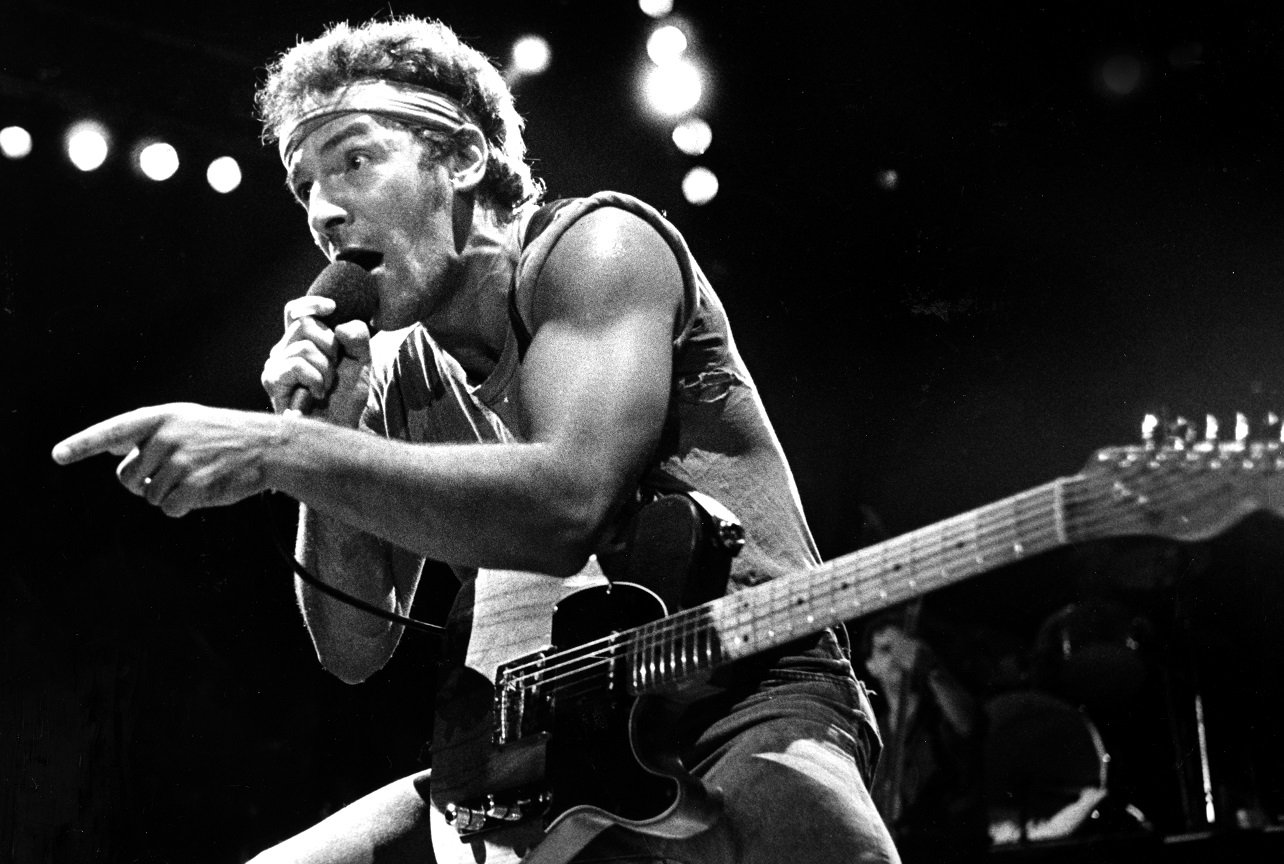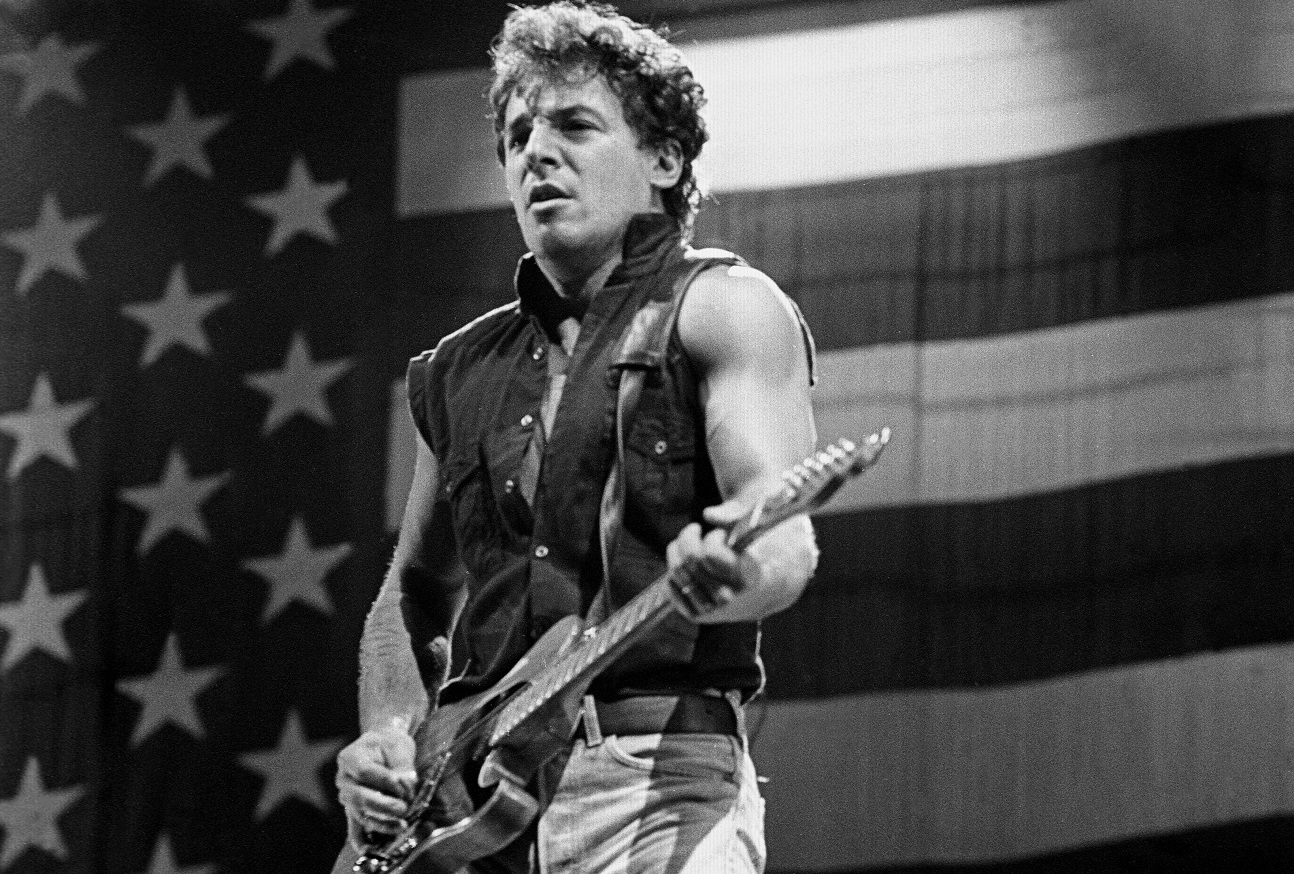Bruce Springsteen Went After Richard Nixon in an Early Draft of ‘Born in the U.S.A.’
During every election, you’ll see politicians use songs at rallies without an artist’s permission. Ex-president Donald Trump did it countless times. Over the years, everyone from Neil Young to Rihanna and the Rolling Stones had to send word that they didn’t want their music played at Trump rallies.
Bruce Springsteen knows the feeling. Since the singer-songwriter released “Born in the U.S.A.” in 1984, he’s dealt with politicians trying to use the song as a flag-waving anthem. (It’s not.) Speaking with NPR in 2005, Springsteen described his famous track as “a classic situation song that got misinterpreted.”
Springsteen said he’s learned to live with politicians co-opting his music and message. “I always had the chance to go out on stage at night and say my piece and play my songs,” he told NPR. Instead of making statements, Springsteen began playing the track on acoustic guitar in concert.
He also released a video for the song that you’d think would clear up any doubts. But if Springsteen had released an earlier version of his song, no one would have trouble understanding the message. At one point, he had lyrics that contemplated punishments for former president Richard Nixon.
Bruce Springsteen sang about a severe punishment for Richard Nixon in a draft of ‘Born in the U.S.A.’

After digging a little, you’ll understand the connection between Nixon and “Born in the U.S.A.” Springsteen’s song spoke about working-class Americans going to war in Vietnam and coming back to find themselves out of options. When Springsteen was 19 (i.e., draft-eligible), Nixon was president.
In Bruce Springsteen: The Stories Behind the Songs, Brian Hiatt pointed out how Springsteen began the song in the early ’80s with the title of “Vietnam.” Springsteen had played a major veterans’ benefit around that time. He’d also read a book about Nixon’s expanding the war into neutral Cambodia.
According to Hiatt’s book, Springsteen couldn’t get over how Nixon never faced prison time for such an act. And one lyric in that period’s draft of “Born in the U.S.A.” spoke to his frustration. They should have “cut off [Nixon’s] balls” Springsteen sang.
Springsteen also contrasted US policy toward ‘the yellow man’ with that of ‘the white man’

If you’ve heard people get “Born in the U.S.A.” wrong, you can see how they’d really get the second verse wrong. “They put a rifle in my hand,” Springsteen’s narrator sings. “Sent me off to a foreign land / To go and kill the yellow man.”
To this day, people misinterpret these lines as some sort of racist message. (Just check the YouTube video comments.) In The Stories Behind the Songs, Hiatt supplies another lyric that makes Springsteen’s antiracist message explicit. He quotes a line about how they (i.e., the U.S. government) wouldn’t be treating “the white man that way.”
When Springsteen spoke to NPR about people taking “Born in the U.S.A.” the wrong way, he said the song’s structure could have something to do with it. “People felt the pride was in the chorus,” he said. “In my songs, the spiritual part, the hope part, is in the choruses. […] And your daily realities are in the details of the verses, you know?”


